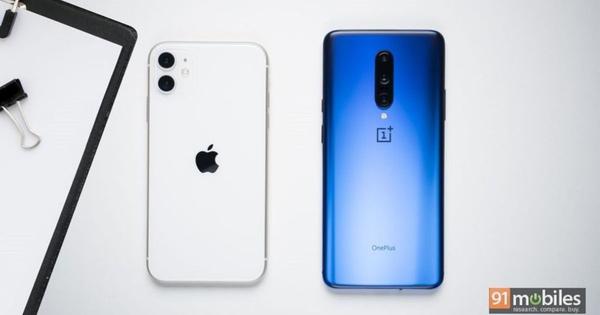Industry 4.0 in the UK – four 4G/5G installs, four 4G/5G industries (and four Nokia wins)
This started, provisionally, as a roundup of five key private 5G deployments in five key private 5G industries in five key private 5G markets, spurred by a couple of recent announcements we missed originally, by Spanish construction firm Ferrovial at the Silvertown Tunnel project in London and by British Sugar across multiple sites in the UK. As a journalistic exercise, the job was just to search out further industrial 5G examples, from anywhere in the world.
But it morphed quickly on account of the fact both the Ferrovial and British Sugar projects were based in the UK; these seemed important to include on the basis they are major new deployments, and they also disrupted the original five-market brief. We could lose the geographical symmetry, and stick with five industries; but, really, for an obsessive, it seemed better to go the other way and put the focus entirely on the UK – to write up five key UK private 5G projects.
Plus, the UK makes for an interesting case study; it has a bad and undeserved reputation, arguably, compared with the rush of private LTE and 5G activity in Germany, the US, and China – which are perceived to have either broken ground on ‘vertical’ spectrum (Germany, the US) or Industry 4.0 economic policy (China, Germany), or else just to be in charge of the largest manufacturing economies on the panet (all three – with apologies to Japan in third).
But, actually, the UK has done/does pretty well on all three counts, with local regulator Ofcom stepping in relatively quickly to introduce new shared-spectrum provisions for industry, and the government pouring money into a number of industrial network testbeds (cajoling a number of home-grown network suppliers). The UK manufacturing sector – as the poster child in the Industry 4.0 game – is also the ninth biggest in the world. All considered (of course), the UK Industry 4.0 picture should be properly regarded, then.
But with a bit of searching (and without, because it is plain), most of the private cellular market – in the UK, and more generally – remains stuck, fairly happily in real terms, on LTE; there are not many proper industrial-grade (Release 16) 5G devices out there (and no industrial Release 17 units, clearly), except for consumer units in ruggedised industrial garb, and most ‘5G’ use cases are really about go-faster LTE-style mobility and collaboration, presently.
So LTE (‘4G’) remains where Industry 4.0 is at. Which is sensible and good; LTE is capable enough in lots of cases, most installations afford a 5G upgrade path anyway, and logic says industry might as well get its hands dirty ahead of the 5G rush – if only to find how much of industrial IoT does not require 5G. So this 5G-only tale should look at the industrial LTE market, too, where the action is more real, and longer going.
The other thing that became apparent when searching the archives – internally and externally – for UK industrial-cellular deployments is quite how often Finnish vendor Nokia is involved. It is the kind of statement that will get backs up, among the wider network supplier community. But the below article presents four crucial private LTE/5G deployments, arguably the highest-profile in the UK right now, and Nokia is propping up each, at least from the point of view of networking gear.
Which is not to say that Nokia has cornered the market. This is Nokia’s game, which it has been playing with industry for decades; just as it is for certain others, as well. But the game has been opened up, with the evolution of cellular capabilities and also with the evolution of cellular architectures. Industrial customers have a wide and expanding range of suppliers to pick from, and the likes of Nokia have a battle to stay ahead of the race. This (short) list of UK private network deployments (and one trial) only suggests that, for now, Nokia might just have it, by a nose. Not that it proves that, clearly.
1 | Construction | Ferrovial
Spain-based transport infrastructure and urban services company Ferrovial has deployed a private 5G network, in standalone (5G SA) mode, at its major Silvertown Tunnel project in London. The firm is building a new 1.4-kilometre twin-bore road tunnel under the Thames in East London, to connect Greenwich and the Silvertown district by Royal Victoria Dock on the south and north sides of the river.
The tunnel, scheduled to open in 2025, will serve to reduce congestion at the nearby Blackwall Tunnel, one of the worst traffic spots in the city. It is the first new tunnel to go under the Thames in 30 years. Its construction will be combined with improved public river-transport, also. The 5G network is already live at the site at Greenwich Peninsula on the south side of the river; it is to be extended to the opposite bank in the next few months.
System integrator Telent is handling the design and build of the network. The UK firm is focused on ‘critical industry’, it says; its website lists transportation, emergency services, and utilities as specialist areas, alongside the telecoms, healthcare, and education sectors. The Silvertown project is being delivered on behalf of Transport for London (TfL) by the Riverlinx Construction joint venture, comprising BAM Nuttall (also engaged with Nokia at anither key , Ferrovial Construction, and SK Ecoplant.
The setup in East London uses 3.8-4.2 GHz (band n77) shared spectrum, as made available by UK regulator Ofcom. Ferrovial uses Nokia’s ‘digital automation cloud’ (DAC) product in most of its LTE and 5G installs; the Greenwich extension, however, will be based on open RAN, with radio equipment from “different vendors”, and a network management platform from Neutroon / i2CAT, for managing sundry industrial technologies and apps.
Upon full completion, the network ‘run’ – the management of the network – will be handled by Ferrovial. The original announcement, last October, called the Silvertown deployment “one of the world’s first” private 5G SA networks – and the UK’s first in operation. (It might be noted, such claims, as below, are made variously.) The network will be used to “boost site communications”, at both ends of the tunnel and in the main tunnel-construction itself.

Applications for environmental monitoring and “real-time visualisation of construction progress” will be introduced, including to improve working conditions inside the tunnel. The network will be used as an innovation testbed for selected use cases, also. A statement said: “This tech milestone… will make it possible, for example, to design future construction projects combining IoT, AR, AI, and robotics.”
2 | Manufacturing | British Sugar
British Sugar has deployed a private LTE network at four factory production sites in the UK. The project is billed as a “first-of-its-kind” deployment covering multiple venues across a large geographical area. The business arm of Virgin Media O2, the 50:50 joint venture between Liberty Global and Telefónica in the UK, has handled the build phase, as a “custom-built private O2 4G network”, with Nokia engaged as a “strategic partner”. It is unclear whether the project uses shared / private ‘vertical’ spectrum, or utilises reinforced local RAN infrastructure leveraging O2’s licensed spectrum in the UK.
The multi-site LTE deployment is part of British Sugar’s internal ‘factories of the future’ upgrade at its four UK production facilities – spanning an operational area of more than two square kilometres, scattered in four patches across Norfolk, Suffolk, and Nottinghamshire – geared to deliver “next-generation manufacturing techniques”. Wi-Fi remains “challenging”, they said, “due to a highly metallic” factories and requirements also for outdoor coverage.
Virgin Media O2 Business is on a seven-year (“multi-million pound”) contract with British Sugar; it recruited Nokia to the smart-factory project. The companies have said they will collaborate from the outset on “more than 15 different digital manufacturing use cases”, starting with predictive maintenance applications to monitor machines and optimise processes – to reduce downtime, disruption, wastage, costs, and energy usage.
British Sugar has committed to “fully embrace the Industry 4.0 ecosystem” to co-create and co-develop new industrial applications with Virgin Media O2 and Nokia, and their various partners. A statement said: “The network will connect multiple IoT devices, which means British Sugar will be able to revolutionise its production process, introducing… AI, automated production lines, robotics, and drones.”
The networks will cover British Sugar’s factories in Wissington and Cantley in Norfolk, Bury St Edmunds in Suffolk, and Newark in Nottinghamshire. They will be upgraded to 5G “where necessary”, as the project and the ecosystem develops – and as use cases (“robotics to streamline production, automated ground vehicles, and connected drones that can cover a large area and can monitor tall structures such as silos and lime kilns remotely and safely”) demand.
3 | Logistics | Associated British Ports
Associated British Ports (ABP), which owns and operates 21 ports in the UK, is working with US-based Verizon Business on a private 5G install at the Port of Southampton. ABP handles about a quarter of sea-borne trade in the UK. It has a separate smart-port project with UK operator BT in Ipswich. When it was announced, last April, the work at the Port of Southampton represented the first European private 5G contract for Verizon’s enterprise division.
Nokia is, again, the key vendor in the mix – again supplying its Digital Automation Cloud (DAC) product, and again recruited by the primary operator / integrator in the project. Nokia had been appointed by Verizon six months prior, as a preferred supplier for its private networks and Industry 4.0 offensive in international markets. Verizon Business said the Southampton deployment will be a “completely dedicated edge compute infrastructure”.
ABP has a shared UK access licence at 3.3–3.8 GHz. The Port of Southampton is responsible for £40 billion in exports per year; Verizon Business called it the UK’s “number one port for cars and cruise”, and the first UK mainland port with a private 5G network, it is claimed, providing a “reliable and secure” private wireless data network across “selected areas” on the East and West Docks at the Port, to support sundry IoT sensing and AI sense-making tech.
There is little, as yet, in terms of prospective use cases, but the standard smart-port cases are well known, linked to asset tracking, autonomous guided vehicles, workflow management, predictive maintenance and safety monitoring. A statement declared Wi-Fi to be unfit for purpose in large outdoor logistics sites, such as ports. The new network will “address the immediate problem of loss of onsite data communications as a result of poor Wi-Fi connectivity”, it said.
4 | Energy | Western Power Distribution
Another recent win for Nokia’s enterprise team, this time with Western Power Distribution (WPD), which handles electricity distribution in the UK via its WPD subsidiaries in the the South West and Midlands regions, as well as in South Wales. The deployment, again a private LTE affair, is only in trial mode currently at WPD’s test and development centre in Taunton in Somerset. It is geared for smart grid monitoring and control functions.
The setup uses Nokia’s modular private wireless (MPW) solution (as opposed to its cut-down cloud-based DAC version) to provide potentially wider macro-sized private coverage. It is being tested specifically as an LTE starter-project and 5G future-project to support operation of WPD’s smart grid across its UK service territories, including for supervisory control and data acquisition (SCADA), plus mission-critical voice, video, and data services.
The trial project, which goes under the name ‘LTE Connecting Futures’, is testing LTE at 410-430 MHz (Band 87), notably throughput and interference in different grid environments, plus private network slicing for tenant companies in the gas and electricity sectors. The trial is also looking at ways to jigsaw wide-area private LTE coverage with other licensed and unlicensed radio, microwave, and fiber networks. Use cases include active network monitoring, power quality measurements, CCTV, distributed generation, and grid automation.
Despite its ongoing trial status, WPD has been working with Nokia on the project for two years already – showing the importance for the supplier market to ‘farm’ Industry 4.0, and the slow-moving nature of Industry 4.0 as a customer market. As well as radio and core network elements, Nokia is providing an industrial talk/video solution, plus SCADA-capable industrial user equipment such as workpads.








